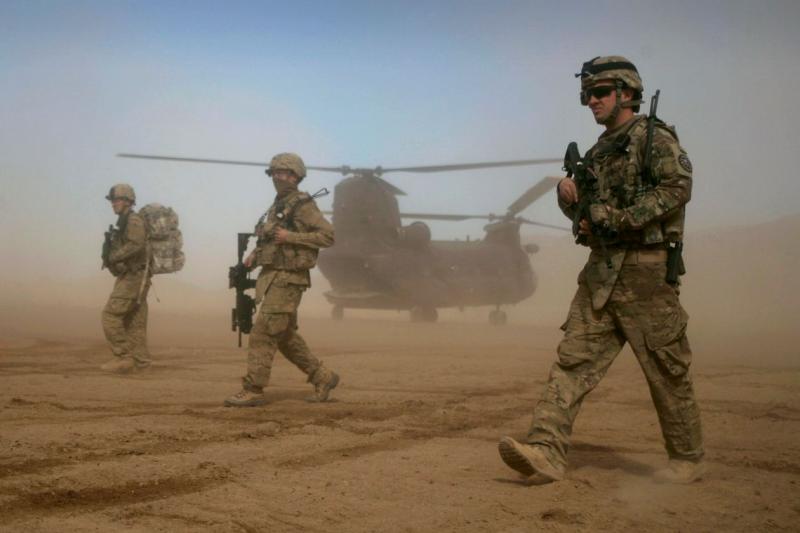Biden's Afghan Exit
By: The Editorial Board (WSJ)



The White House announced Tuesday that President Biden plans to withdraw all U.S. troops from Afghanistan by Sept. 11. The symbolic but arbitrary date shows the decision is driven less by facts on the ground than a political desire that is also a strategic gamble. History suggests U.S. interests will suffer.
The target date 20 years to the day after the 9/11 attacks is meant to underscore that at long last the Afghan war will end. But of course it won't. The country will see its civil war escalate, as the Taliban seek to retake Kabul and reestablish the Islamic Emirate of Afghanistan. If the country again becomes a sanctuary for al Qaeda and Islamic State, don't be surprised if U.S. troops have to return as they did in Iraq after Barack Obama's 2011 withdrawal led to the rise of ISIS.
***
Mr. Biden inherited a bad situation as President Trump had negotiated a May 1 withdrawal date. As the U.S. drew down its forces, the Taliban failed to cut ties with al Qaeda and have captured military bases around the country.
Today some 10,000 foreign forces remain, including as many as 3,500 Americans. A U.S. departure means NATO and other partner troops will leave too. The U.S. says it will stay diplomatically engaged, but the withdrawal almost surely means the peace talks between the Taliban and Kabul will fail. The Taliban will feel no pressure to make concessions, and Afghan President Ashraf Ghani has no reason to negotiate his own execution.
Whether the U.S.-backed government can survive is unknowable, though it's unlikely to have much influence outside Kabul. The Afghan army and police may lose confidence without foreign backing, and the Northern Alliance will reform as protection against the Taliban.
John Sopko, the Pentagon’s special inspector general for Afghanistan reconstruction, said last month that without U.S. support the government “probably would face collapse.” The intelligence community’s 2021 Threat Assessment, published Tuesday, suggests that “the Afghan Government will struggle to hold the Taliban at bay if the coalition withdraws support.”
As the Taliban and militias around the country gain more influence amid a governing vacuum, millions will lose access to basic services and humanitarian relief. Hard-fought progress for women will vanish. Iran will become more influential in Herat, and Pakistan, which has supported the Taliban for years, will face a reckoning as Islamists are strengthened.
But the U.S. invaded in 2001 mainly to destroy al Qaeda safe havens and remove the group’s sponsors from power. If much of Afghanistan again becomes a security vacuum, al Qaeda and ISIS will have a freer hand to plot terrorist attacks against the U.S.
In January the U.S. Treasury said al Qaeda was “gaining strength in Afghanistan while continuing to operate with the Taliban under the Taliban’s protection.” It added that the group “capitalizes on its relationship with the Taliban through its network of mentors and advisers who are embedded with the Taliban, providing advice, guidance, and financial support.”
Mr. Biden’s advisers say that while the Taliban is a problem, the U.S. can still strike terrorists with standoff weapons and can better use limited resources to deter China and Russia. The U.S. will maintain some counterterrorism capabilities. But the rise of ISIS in Iraq showed the limits of what can be done without a physical presence. Congress should ask some hard questions of U.S. military leaders, who need to level with Americans about the security risks of withdrawal.
As for Beijing and Moscow, the message they receive may be the opposite of what Mr. Biden intends. They may see U.S. withdrawal as a sign that Mr. Biden is keen to retreat from America’s global commitments.
The tragedy is that there is a reasonable alternative to withdrawal. The bipartisan Afghanistan Study Group said this year that 4,500 American troops would be enough “for training, advising, and assisting Afghan defense forces; supporting allied forces; conducting counterterrorism operations; and securing our embassy.” That’s not a commitment that prevents the U.S. from dealing with other adversaries.
In the short term, many Americans will welcome Mr. Biden’s retreat as the end of a “forever war.” But the President’s exit means he will have to take responsibility for what happens next. We hope it doesn’t betray the great sacrifices so many have made.

Who is online
36 visitors

